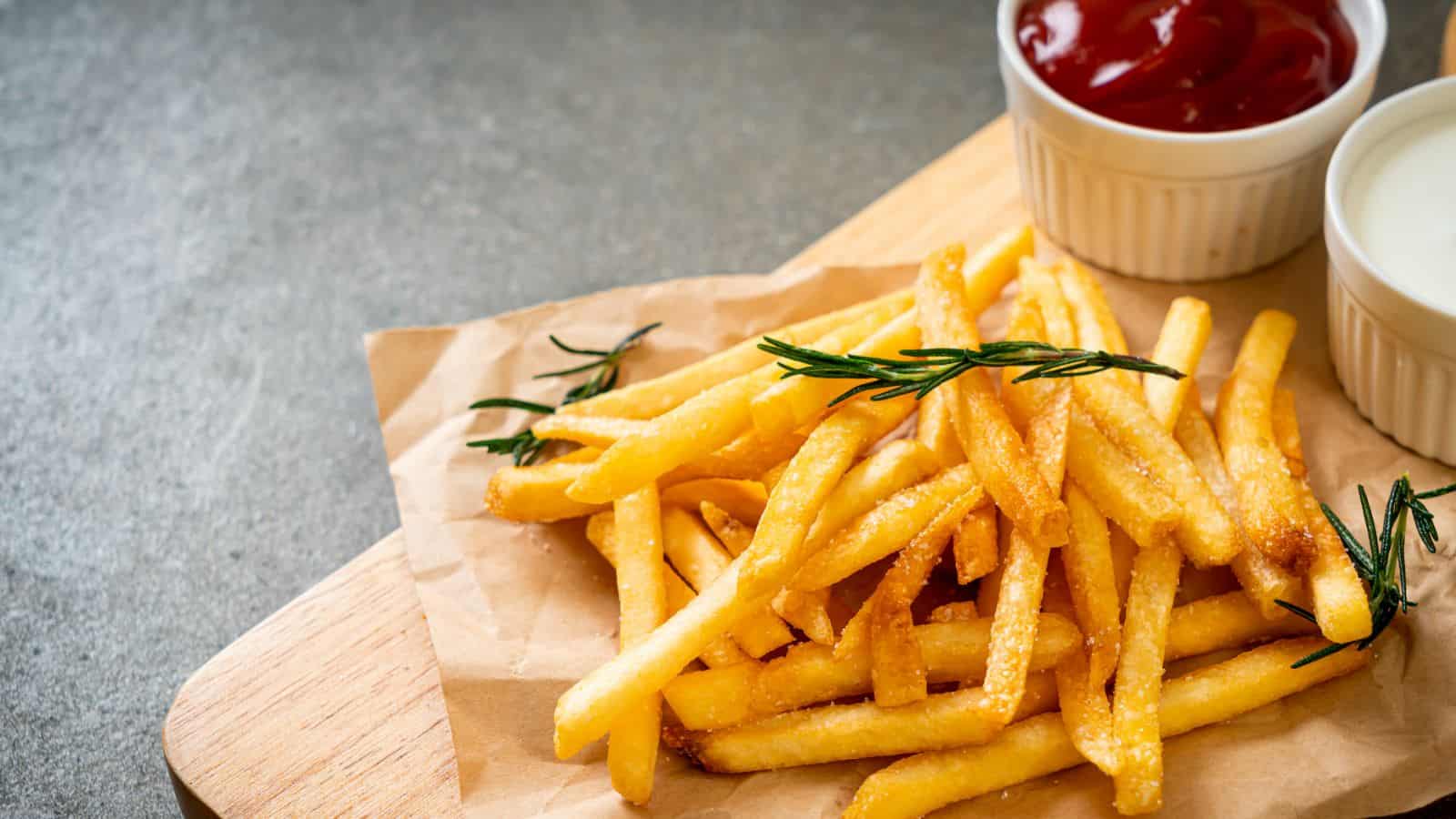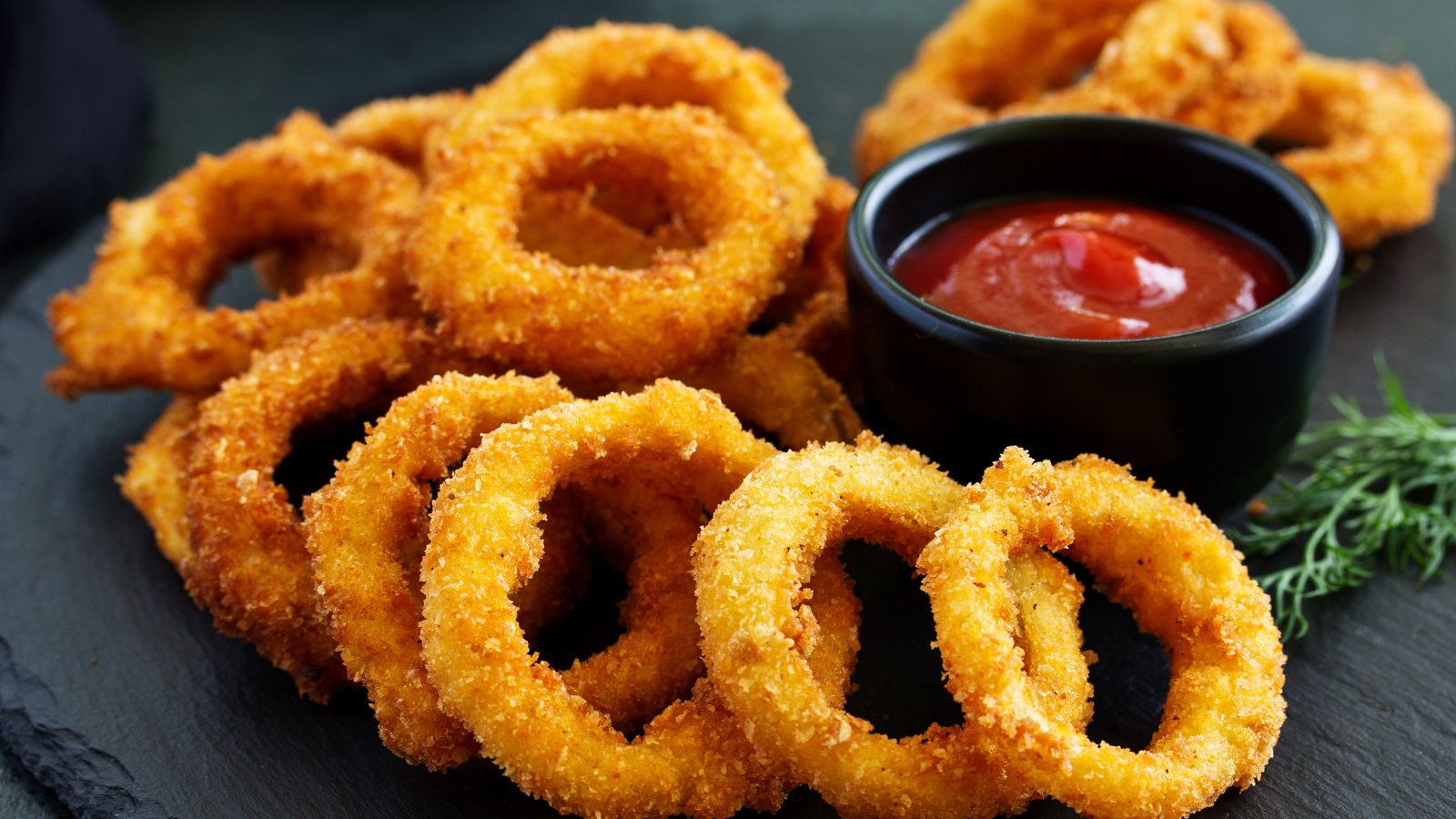Americans definitely have a love affair with certain unhealthy foods—it’s no secret. From sugar-filled treats to deep-fried snacks, this article delves into 17 of the most popular, along with why they’re not great for our bodies in excess.
Processed Cheese

The United States is famed worldwide (and perhaps mocked) for its love of processed cheeses, which sadly contain double the sodium of natural cheese. This increases the risk of hypertension. Processed cheese is also full of preservatives such as sodium phosphates, which can harm kidney health.
Soda

This may be painful to read, but just one 12-ounce can of soda can contain up to 39 grams of sugar. Frequent consumption of these drinks is also linked to health risks such as diabetes, obesity, and heart disease. Even diet sodas contain artificial sweeteners like aspartame, which may pose their own health risks.
Fried Chicken

“Fried chicken makes a cameo on 74 percent of American and Southern menus,” according to US Foods. This shows you just how popular it is! Unfortunately, fried chicken is cooked in unhealthy oils that contribute to bad cholesterol. The meal offers little in terms of vitamins and minerals compared to its calorie load.
French Fries

Another beloved food you can find almost anywhere in America is French fries, which are often fried in hydrogenated oils and can raise bad cholesterol levels. Excessive salt usage on fries can also lead to high blood pressure, and frying starches can create acrylamide, a potential carcinogen.
Ice Cream

There’s nothing like an ice cream on a warm day, but too much of it contributes significantly to your calorie intake without providing any of the essential nutrients. Ice cream often contains artificial flavors and stabilizers, and its high sugar content can lead to cravings and binge eating.
Doughnuts

The coatings and fillings of doughnuts are high in sugar, contributing to spikes in blood glucose. They’re also high in unhealthy fats, often made with shortening. While they’re okay for an occasional treat, they’re very calorie-dense and offer little satiety.
Hot Dogs

CNN states, “It’s estimated that Americans eat 7 billion hot dogs between Memorial Day and Labor Day alone.” Do you indulge in a hot dog or two on the 4th of July or during a baseball game? Try not to eat too many, as these processed meats contain preservatives like nitrates, which are linked to an increased risk of cancer.
Potato Chips

High in calories and fats, potato chips are delicious but very easy to overeat, contributing to weight gain. They’re also cooked at high temperatures, which causes them to form harmful compounds. Excessive amounts of chips can lead to cardiovascular problems.
Cinnamon Rolls

Perhaps the king of all sweet treats, cinnamon rolls are a real delight to our taste buds, but unfortunately, not to our bodies. Just one roll can contain up to 880 calories, mostly from sugar and fat. Their high sugar content also increases the risk of type 2 diabetes and weight gain.
Onion Rings

Battered and fried, onion rings are high in both calories and trans fats. They also have a high sodium content, which can contribute to high blood pressure. Frying diminishes the nutritional value of onions, but we can’t deny they taste great!
Pork Rinds

While pork rinds may have been able to ditch the “junk food” label, at least according to Vice, these snacks are still very high in saturated fats and can contribute to heart disease. Pork rinds are also a risk factor for hypertension due to their sodium content. They offer little more than calories in terms of nutritional content.
Candy Bars

A candy bar here and there is nothing to worry about, but too many can contribute to obesity and diabetes. This is due to the high levels of sugar and fat. Candy also lacks essential vitamins and minerals and often contains preservatives and artificial colors.
Processed Salad Dressings

There’s nothing wrong with a salad, but coating it in heaps of processed dressings can make it rather unhealthy. These dressings are often made with soybean or canola oil and contain additives such as preservatives and artificial flavors. Processed dressings add significant calories with little nutrient return.
Bottled Smoothies

Smoothies are often marketed as healthy, but certain bottled brands can contain as much sugar as a soda! Processing also removes the natural fiber found in whole fruits, meaning you’re getting lots of calories without any of the satiety of whole fruits.
White Bread

“Consuming too much white bread can contribute to obesity, heart disease, and diabetes,” as per Medical News Today. It lacks fiber and essential nutrients found in whole grains and its high glycemic index can lead to blood sugar spikes. White bread often contains added sugars and preservatives.
Pastries, Cookies, and Cakes

America loves its sweet treats, but cakes, cookies, and pastries are very high in sugar and trans fats, increasing the risk of heart disease and diabetes. These calorie-dense desserts also promote weight gain and have minimal nutritional value. Enjoy them, but not too many of them!
Bacon

Ah, bacon; who doesn’t love it? Unfortunately, this crispy delight is high in saturated fat, and too much of it increases the risk of heart disease. It’s also high in sodium and preservatives, and frequent consumption is linked to an increased risk of cancer. Eat it in moderation!
No comments:
Post a Comment